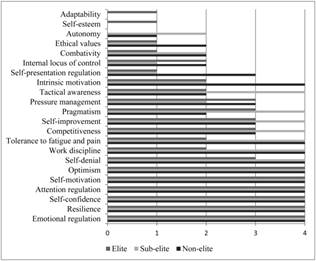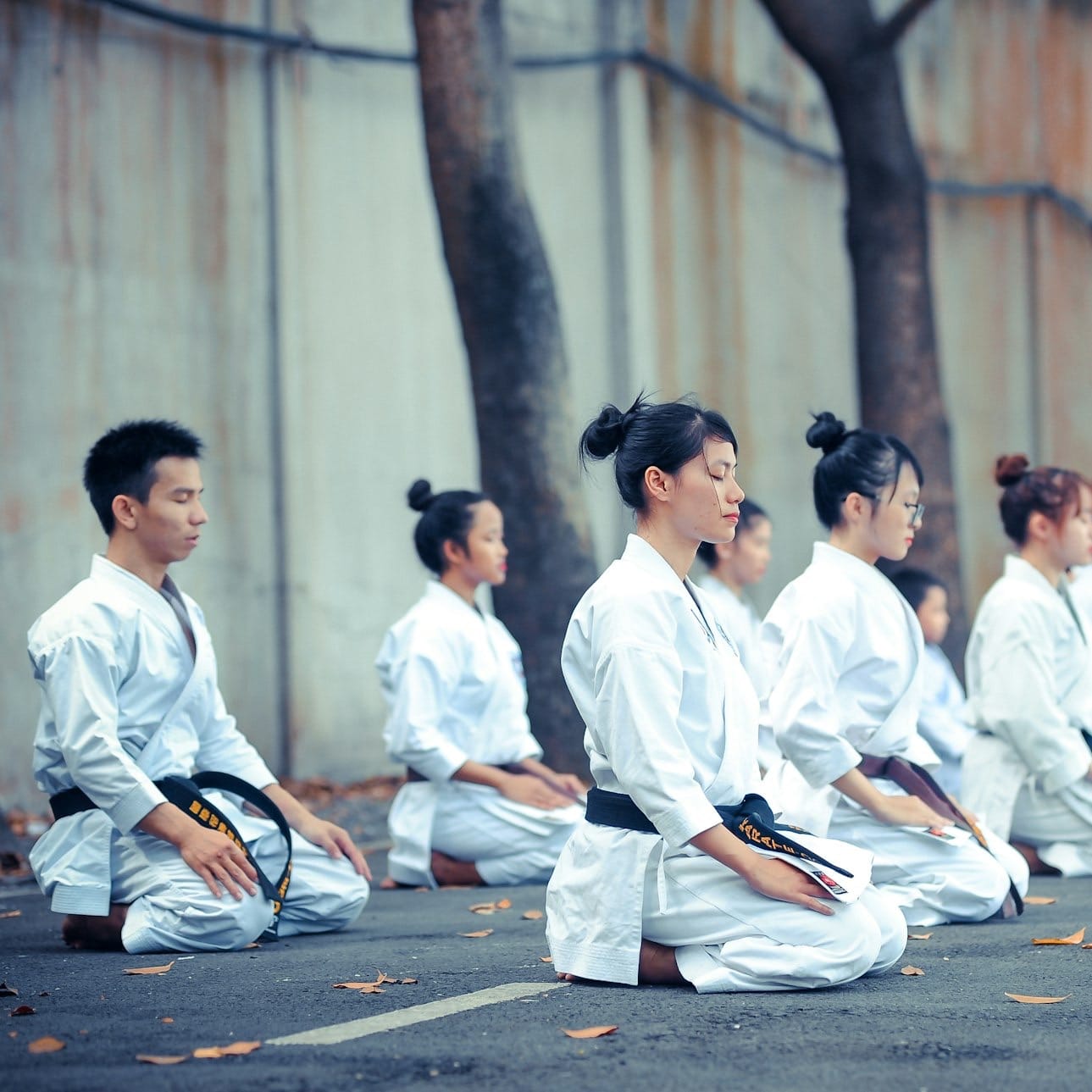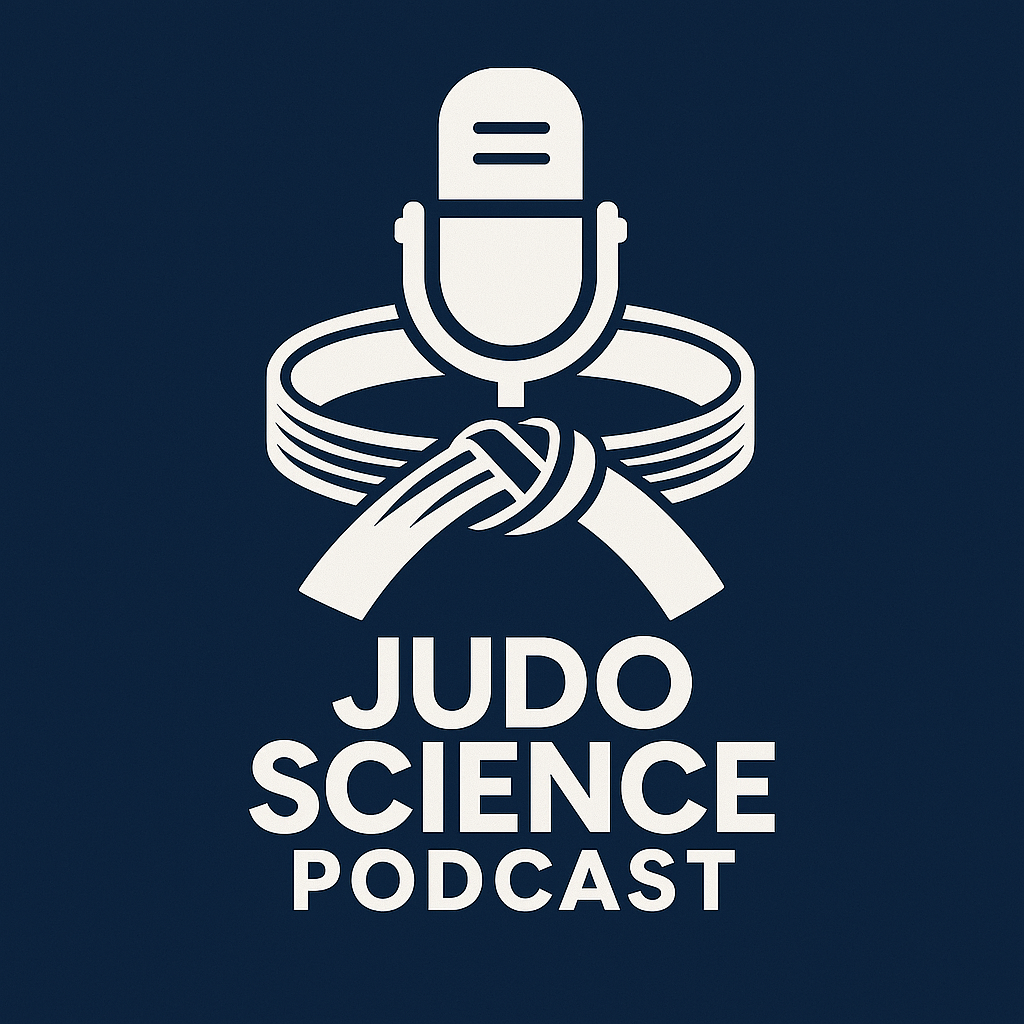What Separates Good from Great?
Golden score. You’re gassed. Fingers cramp around a sweat-slick gi. Your opponent twitches into a drop seoi—do you freeze, flinch, or fire back?
In judo, where margins are razor-thin and fatigue is weaponized, the gap between silver and gold isn’t always technical. It’s psychological.
Mental toughness isn’t a buzzword. It’s a weapon. In this piece, we break down the invisible edge: how elite judoka train their minds, why it matters as much as uchikomi or randori, and what it reveals about life beyond the tatami. We pull from three studies, firsthand interviews, and even business strategy to examine what separates the merely skilled from the unshakably elite.
In this NotebookLM podcast episode, we examine the concept of mental toughness within the sport of Judo. One academic article, "MENTAL TOUGHNESS OF ELITE JUDO ATHLETES", presents a quantitative study on Turkish judokas, investigating how factors like gender, age, and education level influence their mental resilience. Another academic paper, offers a qualitative exploration through interviews with Portuguese judokas, identifying 22 attributes of mental toughness, including emotional regulation, resilience, and self-confidence.
⸻
What Is Mental Toughness, Really?
At the highest levels, toughness isn’t about stoicism. It’s more like internal aikido: redirecting panic, flipping self-doubt, flowing through chaos. Researchers define it as a blend of motivation, pressure management, confidence, and attention control—a cognitive stance that lets you stay dangerous, even when the tank is empty.
Think of it as judo’s invisible kata—an internal form, rehearsed and automatic, that kicks in when everything else breaks down.
“Mental toughness distinguishes between good athletes and those who achieve excellence.” — Silva et al., 2018

⸻
The Tough Get Older (and Smarter)
Mental toughness isn’t innate—it’s iterative. Turkish studies show that older, more educated judoka consistently scored higher on toughness metrics. More time in the sport, more time getting your ego tossed around—these things harden your focus like repeated falls on tatami toughen your breakfall.
Further Reading: Yasar, Onur & Turğut, Murat. (2020). MENTAL TOUGHNESS OF ELITE JUDO ATHLETES. Acta Medica Mediterranea. 995-998. 10.19193/0393-6384_2020_2_157.
But the data gets messy: male athletes often scored higher, potentially reflecting cultural norms around aggression and control. Mental resilience isn’t free-floating. It’s socialized. Toughness, like tachi-waza, doesn’t exist outside context.
⸻
Inside the Champion’s Head
A Portuguese study cataloged 22 toughness traits, but six kept surfacing like a returning ippon:
- Emotional Regulation – Staying icy when it all goes sideways.
- Resilience – Showing up sharp even when undertrained or behind.
- Self-Confidence – Trusting your instincts, even after a bad call.
- Attention Regulation – Locking in for every second, from warm-up to overtime.
- Self-Motivation – Grinding without applause.
- Optimism – Believing the next match is yours, regardless of the last.
Judo adds one more: Combativity—a kind of mental kuzushi. You don’t just hold ground. You disrupt, provoke, press forward like your psychology wears a black belt too.
Olympic silver medalist Travis Stevens expands on this in a conversation with Lex Fridman, where he explains how presence, not grit, was his secret weapon. The trick wasn’t pushing through the chaos—it was being within it, absolutely alert, even when completely wrecked.
⸻
Toughness Off the Tatami
Business strategist and judoka Cedric Chin once got this from his coach: “You don’t have a skill problem. You have a will problem.”
For Chin, the hesitation to cut weight or initiate grips wasn’t physical—it was psychological. That same reluctance showed up in his startup decisions, where he avoided risk unless forced. Judo exposed the blind spots he carried into boardrooms—and gave him a method to attack them.
Mental toughness, it turns out, isn’t just transferable. It’s diagnostic.

⸻
Not Just Grit: The Edge Has Limits
Here’s the catch: mental toughness isn’t a panacea. Yes, it separates champions—but it also can mask deeper problems. Studies caution against fetishizing it. Technical mastery, tactical prep, and rest matter too. Sometimes, “just be tougher” becomes a lazy coaching crutch.
One paper repositions toughness as performing to your own level. That’s quieter. More internal. Less Instagrammable. And it opens space for another truth: what hinders you in judo might empower you elsewhere.
Chin’s analytical caution? A liability in explosive matches—but a strength in high-stakes strategic planning. Grit’s not always the goal. Sometimes, thoughtfulness wins the war—even if it loses the round
Takeways for the Tatami
- Mental toughness is layered, mixing resilience, calm, drive, and focus.
- It strengthens with age and education, as self-awareness deepens.
- Judo’s unique trait is combativity—mental aggression as a strategic weapon.
- The mat reflects the mind, making judo a mirror for life’s deeper patterns.
- Coaches shape toughness, often by pushing through discomfort, not technique.
- Real toughness respects limits, aiming for optimal performance—not ego-fueled wins.
Final Thought
Mental toughness doesn’t mean being unbreakable. It means showing up sharp when you feel shattered. Staying locked in when the lungs burn. Refusing to vanish in golden score.
Your grip fades. Your arms shake. What’s left?
Only mindset.
Quiz: According to research, which of the following factors correlate with higher levels of mental toughness in elite judoka?
A) Body weight and rank
B) Age and education level
C) Training hours per week
D) Diet and hydration practices
Answer
Correct Answer: B) Age and education level
Explanation: Studies found that older and university-educated judoka scored higher on mental toughness metrics, suggesting that experience and self-awareness contribute significantly
(1) Silva, Virgílio & Días, Claudia & Corte-Real, Nuno & Fonseca, Antonio. (2018). Mental toughness attributes in Judo: Perceptions of athletes. Cuadernos de Psicologia del Deporte. 18. 86-101.
(2) Yasar, Onur & Turğut, Murat. (2020). MENTAL TOUGHNESS OF ELITE JUDO ATHLETES. Acta Medica Mediterranea. 995-998. 10.19193/0393-6384_2020_2_157.
(3) Chin, C. (2023) Mental Strength in Judo, Mental Strength in Life. Commoncog. Available at: https://commoncog.com/blog/mental-strength-judo/.




Member discussion: